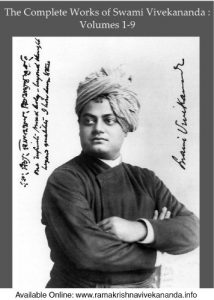Bhakti yoga is a spiritual path or spiritual practice within Hinduism focused on the cultivation of love and devotion toward God. It has been defined as a practice of devotion toward God, solely motivated by the sincere, loving desire to please God, rather than the hope of divine reward or the fear of divine punishment. It is a means toward a state of spiritual liberation or enlightenment through the "realisation", or the attainment of "oneness" with God. Bhakti yoga is often considered by Hindus to be the easiest way for ordinary people to attain such a spiritually liberated state, because although it is a form of yoga, its practice is not as rigorous as most other yogic schools, and it is possible to practice bhakti yoga without needing to become a full-time yogi.
The origins of Bhakti can be seen in the upanishads, specifically the Shvetashvatara Upanishad. The Bhagavad Gita, and the Puranas are important scriptures that expound the philosophy of bhakti yoga. Hindu movements in which bhakti yoga is the main practice are called bhakti movements – the major schools of which are Vaishnavism, Shaivism, and Shaktism.
Swami Vivekananda (12 January 1863 – 4 July 1902), born Narendra Nath Datta, was an Indian Hindu monk and chief disciple of the 19th-century saint Ramakrishna. He was a key figure in the introduction of the Indian philosophies of Vedanta and Yoga to the Western world and is credited with raising interfaith awareness, bringing Hinduism to the status of a major world religion during the late 19th century. He was a major force in the revival of Hinduism in India, and contributed to the concept of nationalism in colonial India. Vivekananda founded the Ramakrishna Math and the Ramakrishna Mission. He is perhaps best known for his speech which began, "Sisters and brothers of America ...," in which he introduced Hinduism at the Parliament of the World's Religions in Chicago in 1893.
Born into an aristocratic Bengali family of Calcutta, Vivekananda was inclined towards spirituality. He was influenced by his guru, Ramakrishna, from whom he learnt that all living beings were an embodiment of the divine self; therefore, service to God could be rendered by service to mankind. After Ramakrishna's death, Vivekananda toured the Indian subcontinent extensively and acquired first-hand knowledge of the conditions prevailing in British India. He later travelled to the United States, representing India at the 1893 Parliament of the World Religions. Vivekananda conducted hundreds of public and private lectures and classes, disseminating tenets of Hindu philosophy in the United States, England and Europe. In India, Vivekananda is regarded as a patriotic saint and his birthday is celebrated there as National Youth Day.
The origins of Bhakti can be seen in the upanishads, specifically the Shvetashvatara Upanishad. The Bhagavad Gita, and the Puranas are important scriptures that expound the philosophy of bhakti yoga. Hindu movements in which bhakti yoga is the main practice are called bhakti movements – the major schools of which are Vaishnavism, Shaivism, and Shaktism.
Swami Vivekananda (12 January 1863 – 4 July 1902), born Narendra Nath Datta, was an Indian Hindu monk and chief disciple of the 19th-century saint Ramakrishna. He was a key figure in the introduction of the Indian philosophies of Vedanta and Yoga to the Western world and is credited with raising interfaith awareness, bringing Hinduism to the status of a major world religion during the late 19th century. He was a major force in the revival of Hinduism in India, and contributed to the concept of nationalism in colonial India. Vivekananda founded the Ramakrishna Math and the Ramakrishna Mission. He is perhaps best known for his speech which began, "Sisters and brothers of America ...," in which he introduced Hinduism at the Parliament of the World's Religions in Chicago in 1893.
Born into an aristocratic Bengali family of Calcutta, Vivekananda was inclined towards spirituality. He was influenced by his guru, Ramakrishna, from whom he learnt that all living beings were an embodiment of the divine self; therefore, service to God could be rendered by service to mankind. After Ramakrishna's death, Vivekananda toured the Indian subcontinent extensively and acquired first-hand knowledge of the conditions prevailing in British India. He later travelled to the United States, representing India at the 1893 Parliament of the World Religions. Vivekananda conducted hundreds of public and private lectures and classes, disseminating tenets of Hindu philosophy in the United States, England and Europe. In India, Vivekananda is regarded as a patriotic saint and his birthday is celebrated there as National Youth Day.












